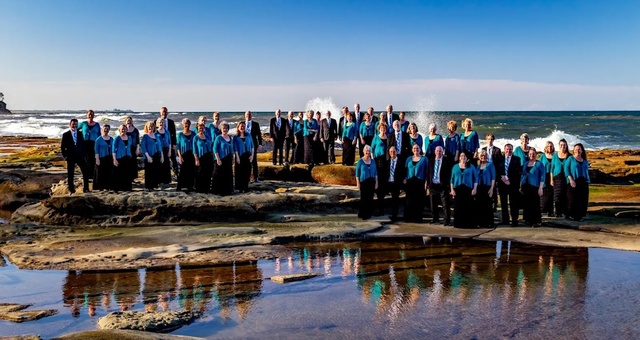Oriana Choir’s presentation this month of The French Connection, highlights the beauty of the language and the music of this intriguing nation.
Yet it also underlines the ways in which the French culture is interwoven with the fabric of Australia.
The concert, to be performed at Gympie and Maroochydore, less than two weeks after French National Day, will be made up entirely of music by French composers ancient and modern, and performed entirely in French and Latin, with not one word of English to be heard.
So, why put on a concert, half of which is in a language spoken by relatively few Australians, while the other half is in what is considered to be, for all practical purposes, a ‘dead’ language?
A fair question. And one which surely deserves a fair and considered answer. A little history and humour may help.
These days, English is generally accepted to be the universal lingua franca for a large part of the world’s business, political, scientific and cultural activity. But this wasn’t always the case.
In the centuries following the Norman invasion in 1066, French became the language of the English court, government, and aristocracy.
While English continued to be spoken by the majority of the population, French, specifically Norman French, became the language of the ruling class. This influence persisted for several centuries, significantly impacting the English language.
To this day, the enduring influence of the French language on English is plain to see in much of our everyday speech.
There are countless French words and expressions that we use nearly every day. Consider these, for example – c’est la vie; déjà vu, bon appetit; rendezvous; omelette,; café; croissant; cordon bleu – the list is endless.
Just think, the theme song of the Brisbane Lions Australian football team – and before that the Fitzroy Football Club – is sung to the tune of the French national anthem – La Marseillaise.
The French Revolution, spanning from 1789 to 1799, closely followed the arrival of the First Fleet in New South Wales in 1788, and the establishment of European settlement in Australia.
Liberte, egalite, fraternite is the French motto and it translates well into Australian society.
Liberty refers to freedom from oppression and the right to individual autonomy.
Equality signifies the equal status of all citizens before the law and in society.
Fraternity emphasises the idea of brotherhood and solidarity among citizens.
Some years ago, Australian song-writer Greg Champion gave us The French Song, a cleverly compiled catalogue of French words and phrases set to the tune of La Vie en Rose.
“Pate, escargots, soup de jour, Cordon bleu, chic coiffure, Fait accompli, maison Creme de menthe, Marcel Marceau Meringue, blancmange, Bardot Gauche, gay Paris, garcon ….”
Try singing it to the beautiful melody of La Vie en Rose, and you’re sure to realise how much fun it is. And that is part of the answer to the question.
Singing in French, apart from anything else, is enjoyable, pleasurable – it’s fun!
Just as French has had a huge influence on the English language, the music of French has made an enormous contribution to the world’s cultural heritage. Just think of some of France’s great composers – Claude Debussy, Maurice Ravel, Hector Berlioz, Camille Saint-Saëns, Georges Bizet, to name just a few. Then consider some of France’s wonderful singers, just from the modern era – Edith Piaf, Charles Aznavour, Jaques Brel, Charles Trenet, Serge Gainsbourg, Francoise Hardy, Juliette Greco.
What we’ve tried to do with The French Connection is to recognise that France has given the world a veritable treasure house of wonderful music, across the whole spectrum of sacred, popular, classical, ancient and modern. And we want to celebrate and honour that treasury with a sample of the beautiful music contained there-in. Some of it you’ll recognize instantly, some will be new to you. But it’s all beautiful music, from the playfulness of Edith Piaf’s Padam Padam (not the Kylie Minogue song), to the flamboyance of Bizet’s Habanera, to the sublime beauty of Gabrielle Faure’s Requiem.
You don’t need to speak the language of France to be able to enjoy the music of France. It speaks for itself. Come and be delighted by la musique francaise. C’est une excellente idée!
The French Connection: Faure’s Requiem plus a bouquet of French choral masterpieces, 2pm Saturday, July 26, at St Patrick’s Catholic Church, Gympie and 2pm Sunday, 27 July, at Stella Maris Primary Hall, Maroochydore.
So book your ticket for a trip to France with the Oriana Choir – no need for your passport! Tickets are on sale now. For all the details visit oriana.org.au. For enquiries phone 0431 542 343.








